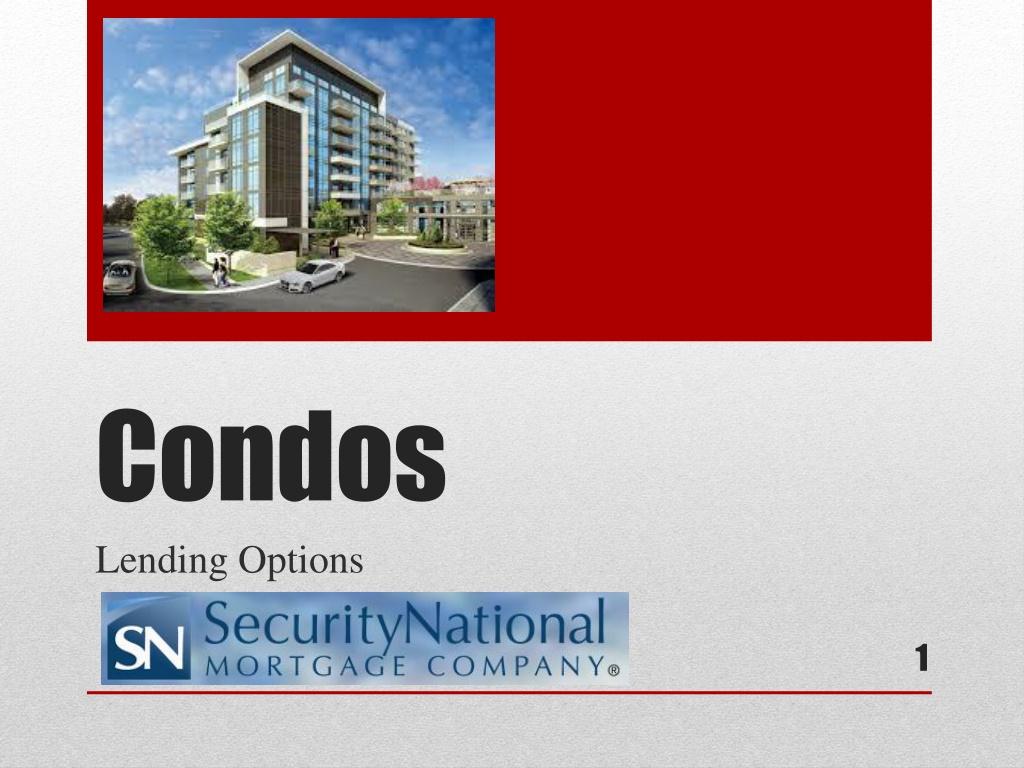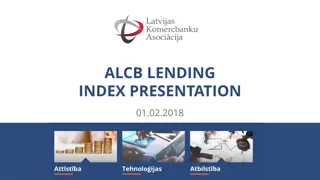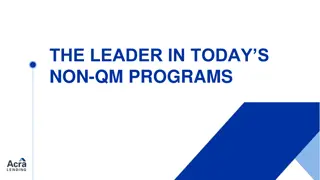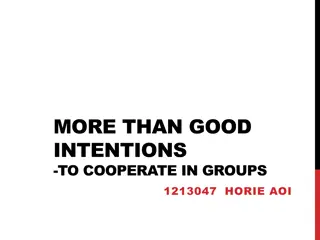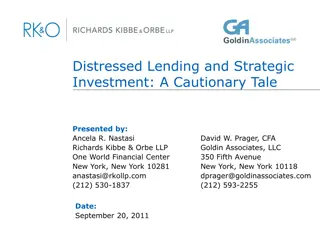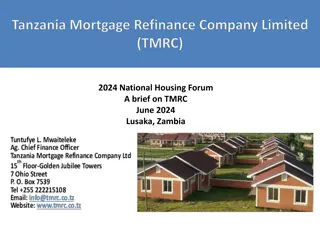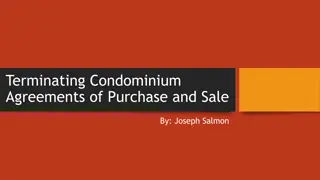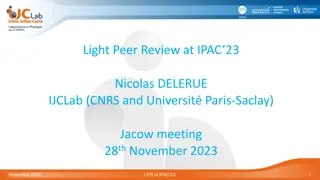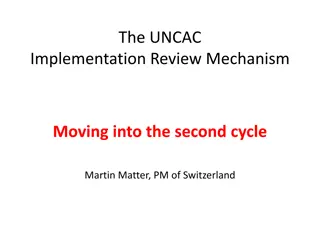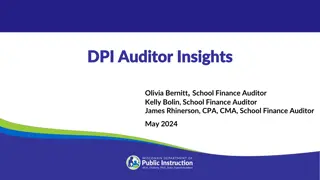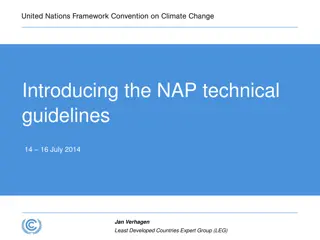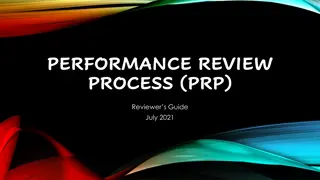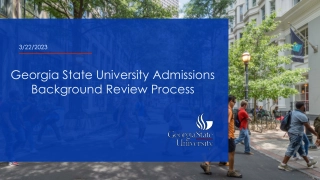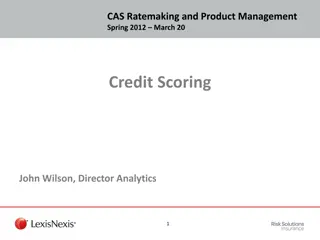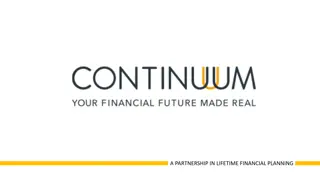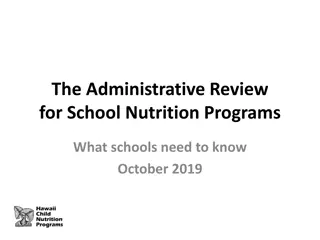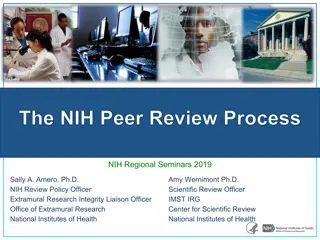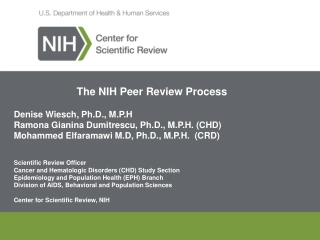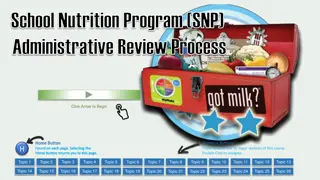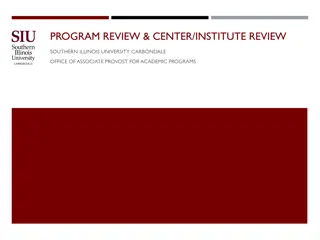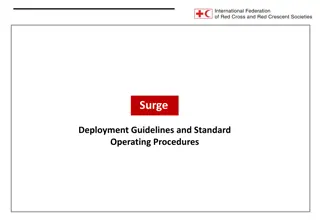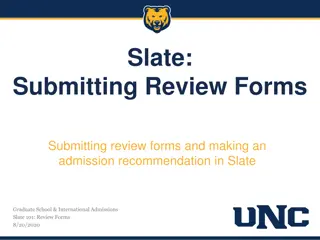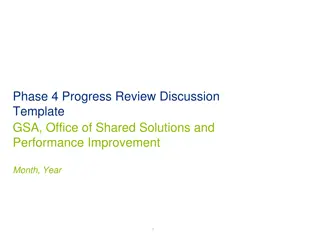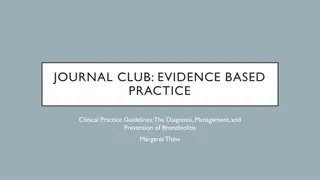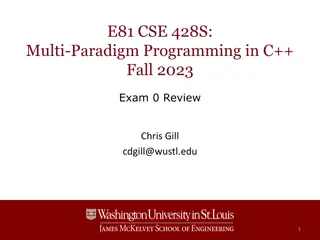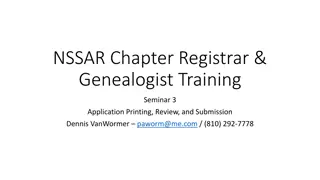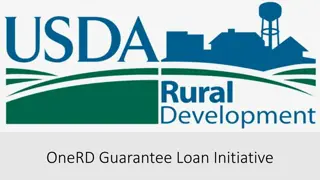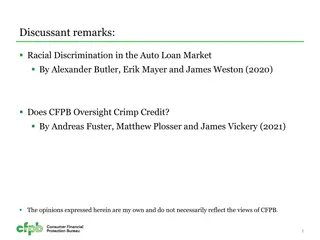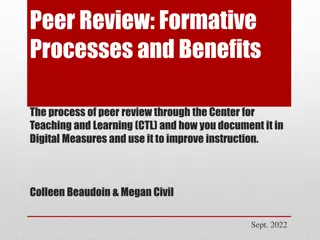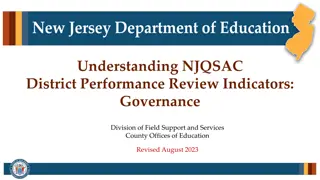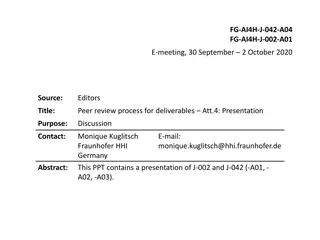Condo Lending Guidelines and Review Process
This detailed content provides insights into the underwriting guidelines and review processes for condos, including limited reviews for conventional loans, project eligibility criteria, and maximum loan-to-value ratios for primary residences, second homes, and non-owner-occupied properties. It also covers full lender reviews and specific requirements for different types of condo classifications. Additionally, the use of FNMA tools and InterIsland for approvals is highlighted.
Download Presentation

Please find below an Image/Link to download the presentation.
The content on the website is provided AS IS for your information and personal use only. It may not be sold, licensed, or shared on other websites without obtaining consent from the author. Download presentation by click this link. If you encounter any issues during the download, it is possible that the publisher has removed the file from their server.
E N D
Presentation Transcript
Condos Lending Options 1
Section 03 - Underwriting Guidelines 03.8 Condo/PUD Guidelines 09/01/16 Limited Review Matrix available for conventional loans Conventional loans must be run through DU. LP is allowed on a case by case basis (exception must come from corporate underwriting dept.) FNMA tools available via efanniemae.com or Google search SNMC GUIDES 2
P Limited Review New Detached Q-Limited Review for Established Projects R-CPM Expedited Review for New Projects S-CPM Expedited Review for Established Projects* U-FHA Approved-Allowed for FHA loans only *note: InterIsland approvals are also S reviews, or Full Reviews CONDO CLASSIFICATIONS 3
Project cannot be an ineligible project as stated in the selling guide; B4- 2.1-02, Ineligible Projects Property must be an attached unit in an established condo project OR a detached unit in a new or established condo project The units, common areas and facilities must be 100% complete and the project must be covered by insurance meeting FNMA requirements LIMITED REVIEW 4
PRIMARY Must have DU Approve/Eligible and Limited Review offering 75% Max LTV for Primary residence in Florida 90% Max LTV for Primary residence outside of Florida SECOND HOME Must have DU Approve/Eligible and Limited Review offering 70% Max LTV for Second Homes in Florida 75% Max LTV for Second Homes outside of Florida NON-OWNER OCCUPIED NOT Eligible for Limited Review LIMITED REVIEW 5
PRIMARY Must have DU Approve/Eligible 97% Max LTV for Primary residence in Florida SECOND HOME Must have DU Approve/Eligible 90% Max LTV for Second Homes in Florida NON-OWNER OCCUPIED 85% Max LTV for N/O/O in Florida FULL REVIEW 6
SNMC utilizes InterIsland for Full Lender Review - Matthew Goldman FULL REVIEW 7
Timeshare, fractional, or segmented ownership projects New projects where the seller is offering sale or financing structures in excess of Fannie Mae s eligibility policies for individual mortgage loans Projects with mandatory upfront or periodic membership fees for the use of recreational amenities Projects that are managed and operated as a hotel or motel Projects with split ownership of the property Houseboat projects Projects that represent a legal but non-conforming use of the land Projects with non-incidental business operations owned or operated by the HOA Co-op projects New or newly converted projects in Florida with attached units that have not been approved by Fannie Mae through the PERS process INELIGIBLE PROJECTS 8
Projects that Operate as Hotels or Motels Projects with one or more of the following characteristics may be operating as a hotel or motel and are therefore ineligible: hotel or motel conversions (or conversions of other similar transient properties), unless the project is an established project, meets all requirements for gut rehabilitation projects, and all units are residential dwelling units; projects that include registration services and offer rentals of units on a daily basis; projects that restrict the owner s ability to occupy the unit; and projects with mandatory rental pooling agreements that require unit owners to either rent their units or give a management firm control over the occupancy of the units. These formal agreements between the developer, homeowners association, and/or the individual unit owners, obligate the unit owner to rent the property on a seasonal, monthly, weekly, or daily basis. In many cases, the agreements include blackout dates, continuous occupancy limitations, and other such use restrictions. In return, the unit owner receives a share of the revenue generated from the rental of the unit. CONDOTEL FEATURES 9
Condo Requirements The lender must review the entire condo project insurance policy to ensure the HOA maintains a master or blanket type of insurance policy, with premiums being paid as a common expense. Amount of Hazard Coverage Insurance must cover 100% of the insurable replacement cost of the project improvements, including the individual units in the project. An insurance policy that includes any of the following coverage, either in the policy language or in a specific endorsement to the policy, is acceptable: Guaranteed Replacement Cost the insurer agrees to replace the insurable property regardless of the cost, Extended Replacement Cost the insurer agrees to pay more than the property s insurable replacement cost, or Replacement Cost the insurer agrees to pay up to 100% of the property s insurable replacement cost. INSURANCE REQUIREMENTS 10
Liability Insurance Requirements The HOA or co-op corporation must maintain a commercial general liability insurance policy for the entire project, including all common areas and elements, public ways, and any other areas that are under its supervision. The insurance must also cover commercial spaces that are owned by the HOA or co-op corporation, even if they are leased to others. The liability insurance policy must provide coverage for bodily injury and property damage that results from the operation, maintenance, or use of the project s common areas and elements. Amount of Coverage The amount of coverage must be at least $1 million for bodily injury and property damage for any single occurrence. If the policy does not include severability of interest or separation of insureds in its terms, Fannie Mae requires a specific endorsement to preclude the insurer s denial of a unit owner s claim because of negligent acts of the HOA or co-op corporation or of other unit owners. Cancellation/Modification Requirements The liability insurance policy for a condo or co-op project must include a provision that calls for at least ten days written notice to the HOA or insurance trustee before the policy can be canceled or substantially modified for any reason. LIABILITY INSURANCE 11
Fidelity Bond Coverage Coverage must equal 3 months of total Project assessments. If the Project is run by a management company, the management company and the HOA must both carry a Fidelity Bond Not required for projects warranted under a Limited Review Not required for projects with less than 20 units FIDELITY BOND COVERAGE 12
FHA LOANS* HUD approval of condominium project is required https://entp.hud.gov/idapp/html/condlook.cfm O/O Rate: at least 50% of the units must be o/o or sold to owners who intend to occupy the units FHA loan concentration rate is currently at 50% (FHA will not issue new case #s once the 50% concentration level is reached) VA LOANS* VA approval of condominium project is required https://vip.vba.va.gov/portal/VBAH/VBAHome/condopudsearch VA s allowance of HUD approved condo ended in 2009 *SNMC project requirements still apply FHA/VA APPROVED CONDOS 13
SECTION 5: CONDOMINIUMS [7 CFR 3555.205] Units in a condominium project are eligible for a guarantee if the condominium has been approved or accepted by HUD/FHA, VA, Fannie Mae or Freddie Mac. USDA CONDOS 14
